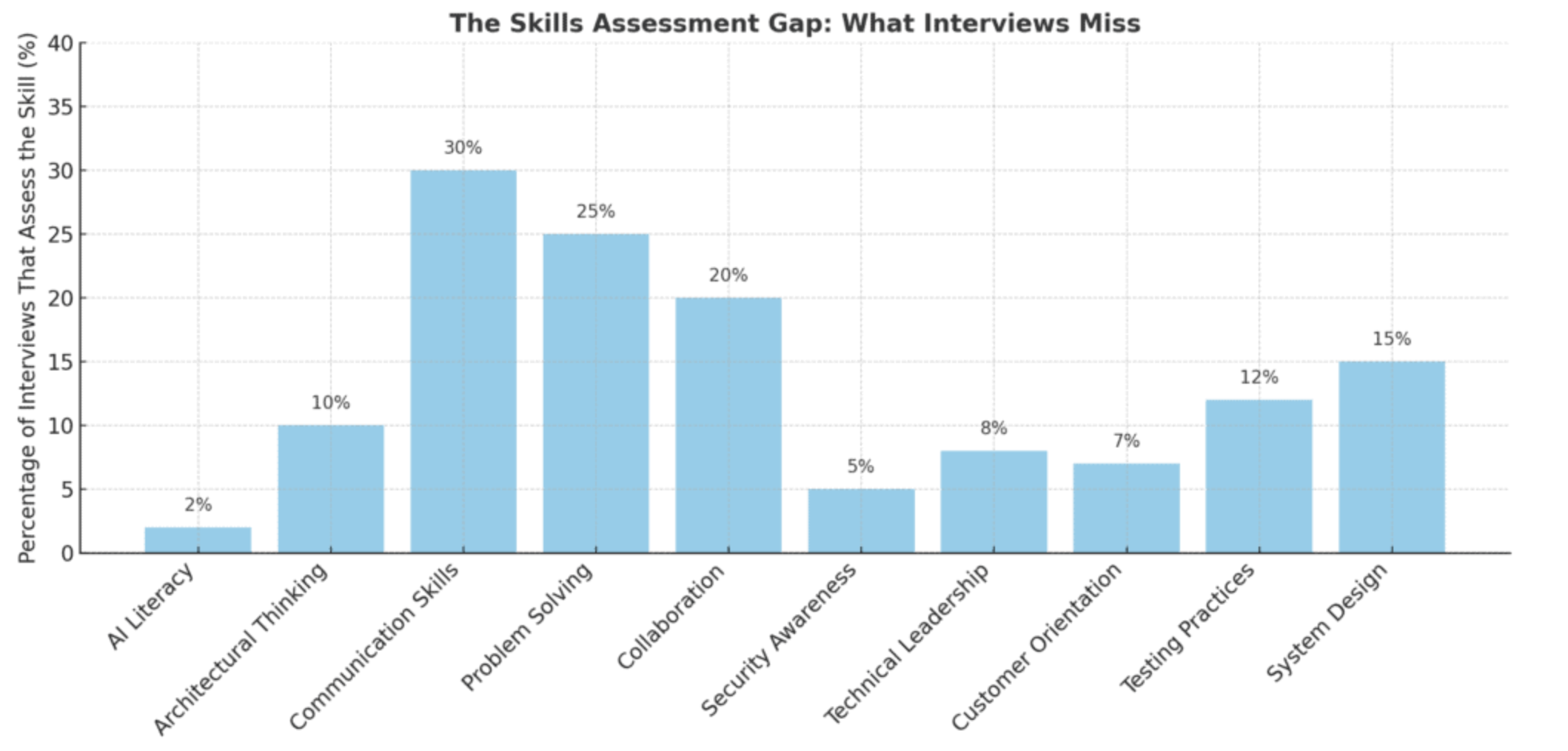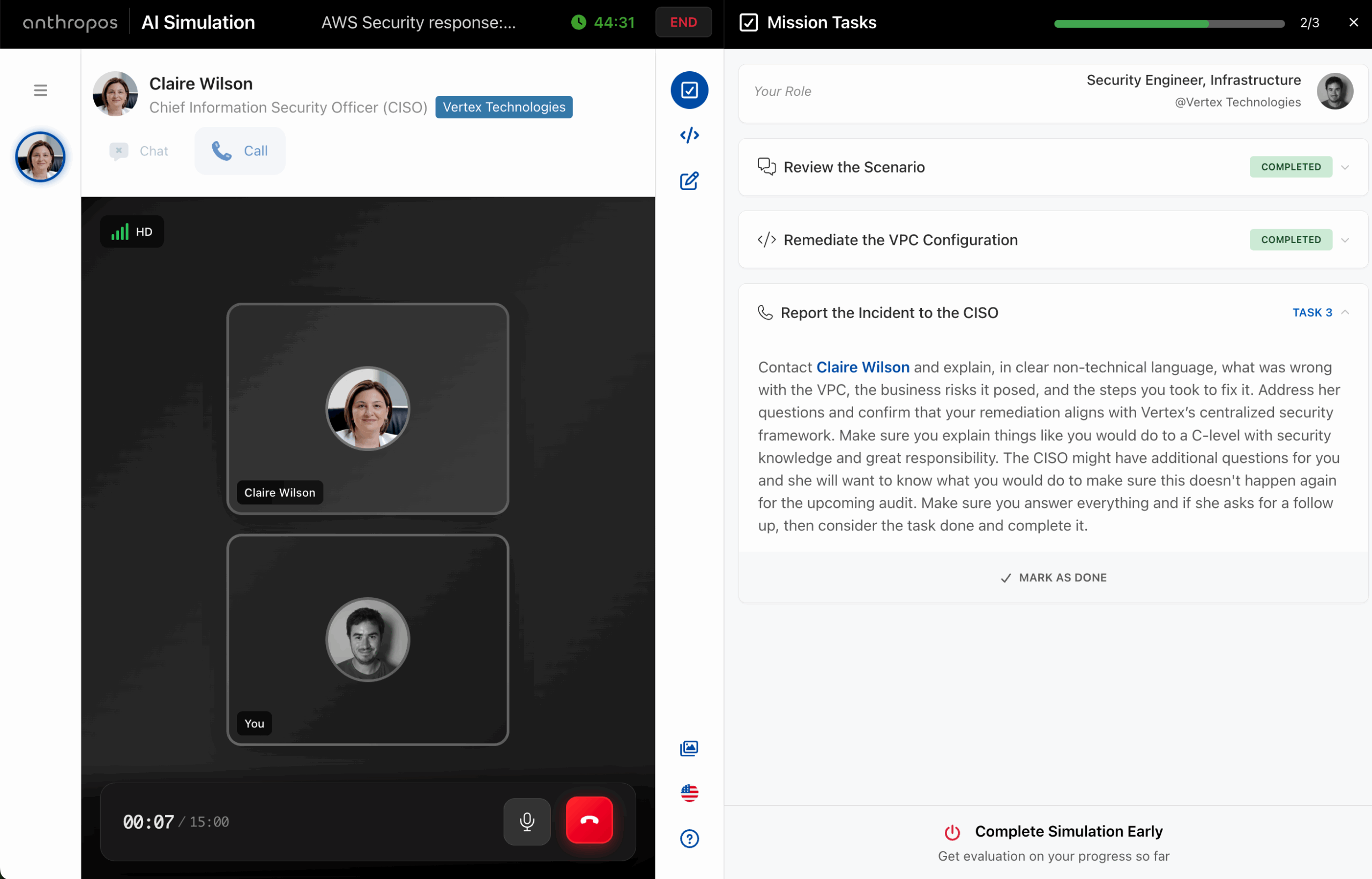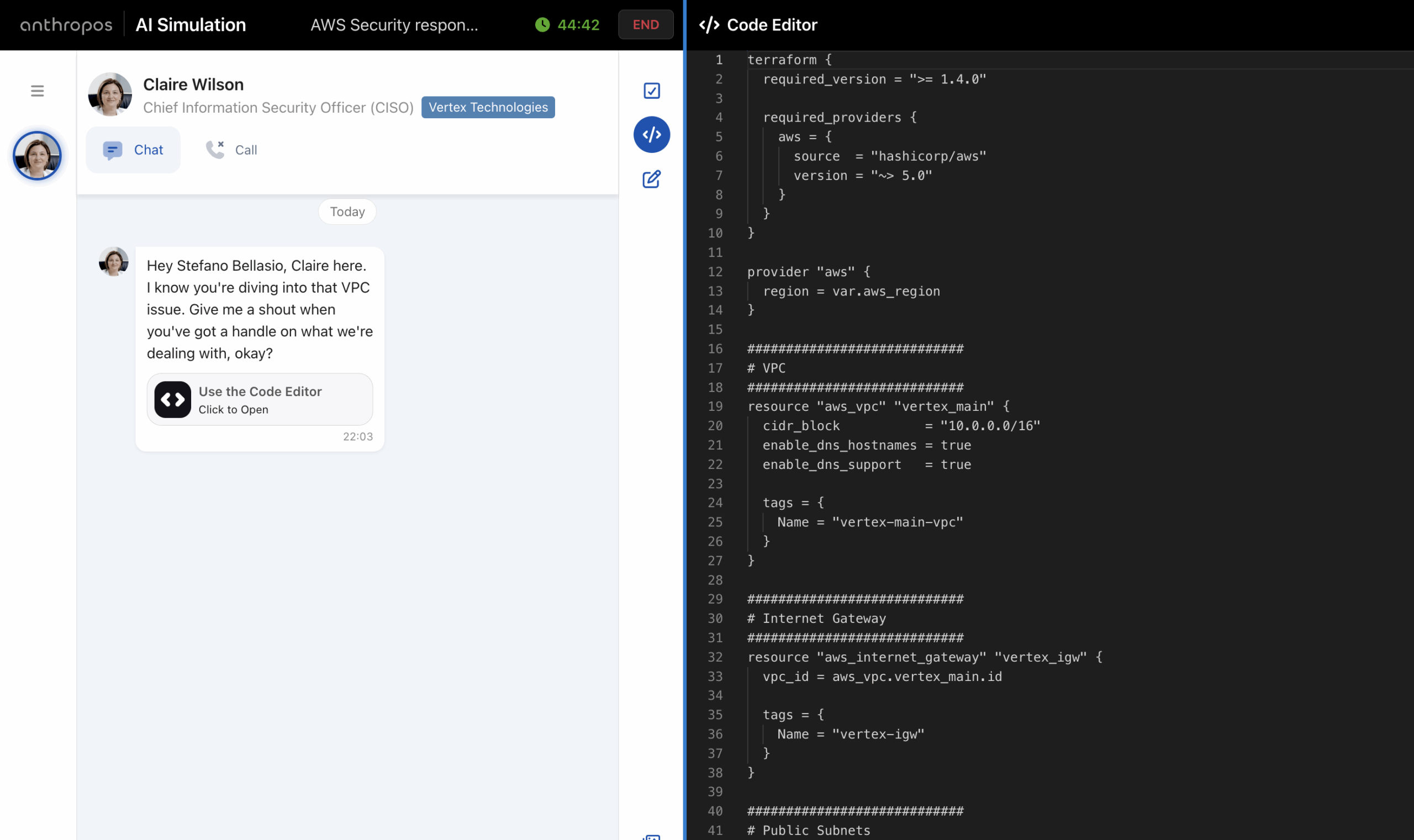Sales roles are uniquely difficult to hire for. On paper, they seem straightforward: find someone who can communicate, persuade, and close deals.
But in reality, sales success relies on a deeper mix of competencies — strategic thinking, adaptability, and resilience under pressure — that are nearly impossible to judge in a traditional interview setting.
The problem starts with how most interviews are structured. When evaluating candidates for a sales role, many hiring teams place heavy weight on how the person presents themselves.
They listen for charm, confidence, and fluency — all things that, on the surface, suggest someone who might excel in a role built on human connection. But what happens all too often is that the candidate who sounds the most impressive during an interview doesn’t actually perform once they’re in the role.
Charisma Isn’t a Predictor of Sales Performance
This disconnect between interview performance and on-the-job execution is particularly common in sales. Salespeople, by nature or training, know how to control a room.
They’re good at telling stories, adapting their tone, and anticipating what the interviewer wants to hear. That makes them excellent at first impressions — and potentially very misleading.
A confident demeanor and strong delivery can mask a lack of substance. Candidates can talk convincingly about results they didn’t drive themselves, or stretch their experience just enough to make it sound like a perfect match.
Unfortunately, sales hiring decisions based primarily on gut feeling or subjective impressions often lead to costly mis-hires. When a sales rep fails to ramp up, misses targets, or damages relationships with key accounts, the cost compounds over time — and it typically takes months to fully understand the mistake.
By the time the team realizes performance isn’t improving, you’ve lost deals, wasted onboarding resources, and potentially burned valuable opportunities.

Resumes Can’t Be Trusted Either
This challenge is only getting worse with the rise of AI. Today, it’s easier than ever for candidates to generate polished, tailored resumes that align perfectly with your job description — regardless of whether the underlying skills and experience are real.
AI-powered writing tools now make it trivial to mimic job-relevant phrasing, inject keywords that trigger ATS filters, and spin vague experience into specific outcomes.
The result is a sea of resumes that look ideal on the surface but say very little about how a candidate actually works. Every CV sounds like it was written by the same person — because in many cases, it was. Even for experienced recruiters, distinguishing between a genuine high performer and a well-packaged pretender is becoming incredibly difficult.
And it’s not just resumes that are affected. Standard pre-employment assessments, like multiple-choice quizzes or personality tests, are equally vulnerable.
Many candidates now use AI to complete online screening tasks, producing high scores without demonstrating real skills. What this means for hiring teams is that traditional filters — once seen as reliable indicators of fit — are increasingly meaningless. You’re reviewing polished representations, not actual ability.
This creates a hiring environment where decisions are based on inputs that are easy to manipulate but hard to verify. And when you’re hiring for sales, where real-world performance matters more than presentation, that’s a dangerous place to be.
You need something that cuts through the polish and shows what people can really do.
Simulations Create a Reality Check
That’s exactly where simulations come in. Realistic, role-specific simulations act as a reality check — a chance for candidates to demonstrate how they perform in scenarios that mirror your company’s daily challenges. And for sales roles, they’re a game-changer.
Anthropos uses AI-powered simulations to assess sales reps not by what they say they can do, but by what they actually do.
When evaluating sales talent, the platform goes far beyond questionnaires or interview scripts. It drops the candidate into an immersive environment where they have to act: making a cold call to a skeptical prospect, responding to objections in real time, or drafting a follow-up email that reflects the company’s tone and value proposition.
You can observe how they think, how they speak, and how they adapt — all without having to sit in on hours of live interviews.
This gives you far more accurate insights into the skills that matter most in a sales context: empathy, clarity, resilience, listening, persuasion, and follow-through. And because it’s all automated, you can run the same experience at scale, across dozens or hundreds of candidates, without sacrificing quality.
Even better, simulations are contextual. They can reflect your exact industry, your ideal customer profile, and your sales cycle.
You’re not just learning how someone sells — you’re learning how they would sell your product. Would they resonate with your buyers? Would they represent your brand the way you expect? Are they strategic or just smooth? Simulations reveal all of this quickly and objectively.

More Insight, Less Risk
With traditional hiring methods, even the best process can lead you to a candidate who looked great on paper and nailed the interview — but who falls apart when deals get complex. That’s because you didn’t get to see how they handle pressure or how they think on their feet. You relied on what they told you, not what they showed you.
Anthropos changes that. By integrating simulations into the hiring process, sales managers and recruiters can reduce that risk dramatically. Instead of waiting months to figure out if a new hire is going to hit quota, you can see evidence of their decision-making, communication style, and sales instincts before the offer even goes out.
This doesn’t just improve outcomes — it speeds up the process. With Anthropos, candidates complete simulations asynchronously.
Recruiters can review structured insights and performance breakdowns in minutes, allowing hiring teams to move quickly on top performers while saving hours of time previously spent in first-round interviews. The quality of hire goes up, the cost of hiring goes down, and the entire process becomes more defensible — no guesswork, just observable behavior.
For high-volume hiring scenarios, or when building a new sales team, this is a massive advantage.
Rather than gambling on intuition, you’re selecting candidates based on how well they actually sell. And once they’re onboarded, that data continues to be useful — helping managers understand strengths, identify development areas, and tailor training accordingly.
A Smarter Standard for Sales Hiring
The future of sales hiring isn’t about resumes or charisma. It’s about evidence.
Companies need to know if the people they’re bringing in can actually do the job. With sales, this matters more than almost any other function: every day a bad hire stays in role, they’re costing you deals, time, and energy.
Anthropos offers a better standard to hire sales reps — one that brings clarity to one of the most ambiguous parts of the hiring process. Through simulations that mirror real-life work, companies can assess sales candidates on the things that matter most: how they interact with customers, how they think under pressure, and how they communicate your value.
It’s not about testing for textbook knowledge or seeing who gives the smoothest answer. It’s about seeing your future team in action — and making smarter, faster decisions as a result. In a time where everything from resumes to personality tests can be gamed, simulations provide the level playing field hiring teams need.
So if you’re still relying on interviews and resumes to make your next sales hire, it’s time to consider a better way. Stop guessing. Let your candidates show you what they can do — and make your next hire your best one yet.
August 12, 2025


